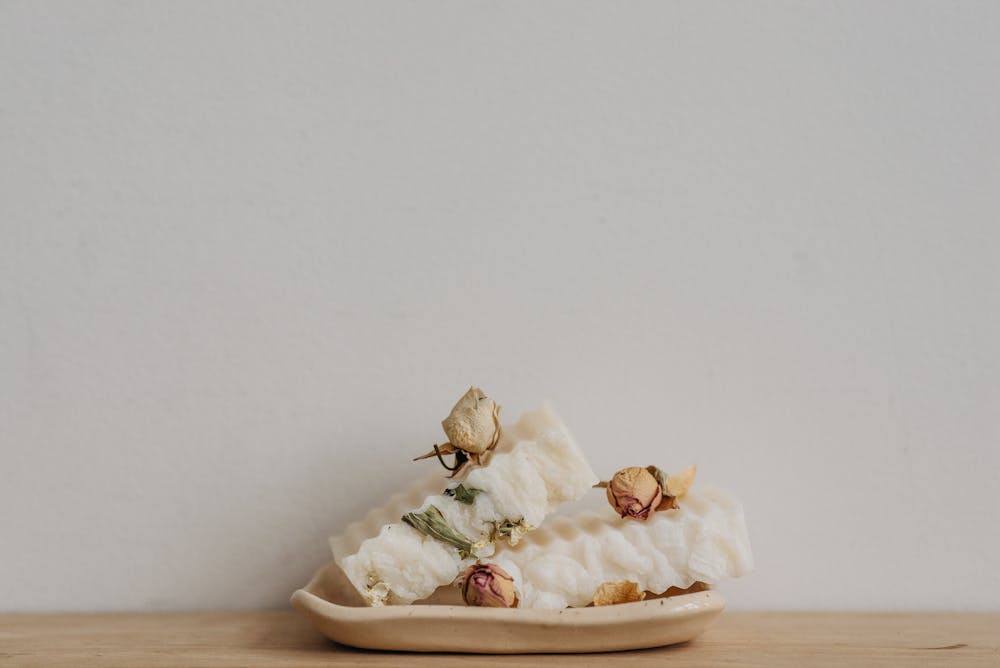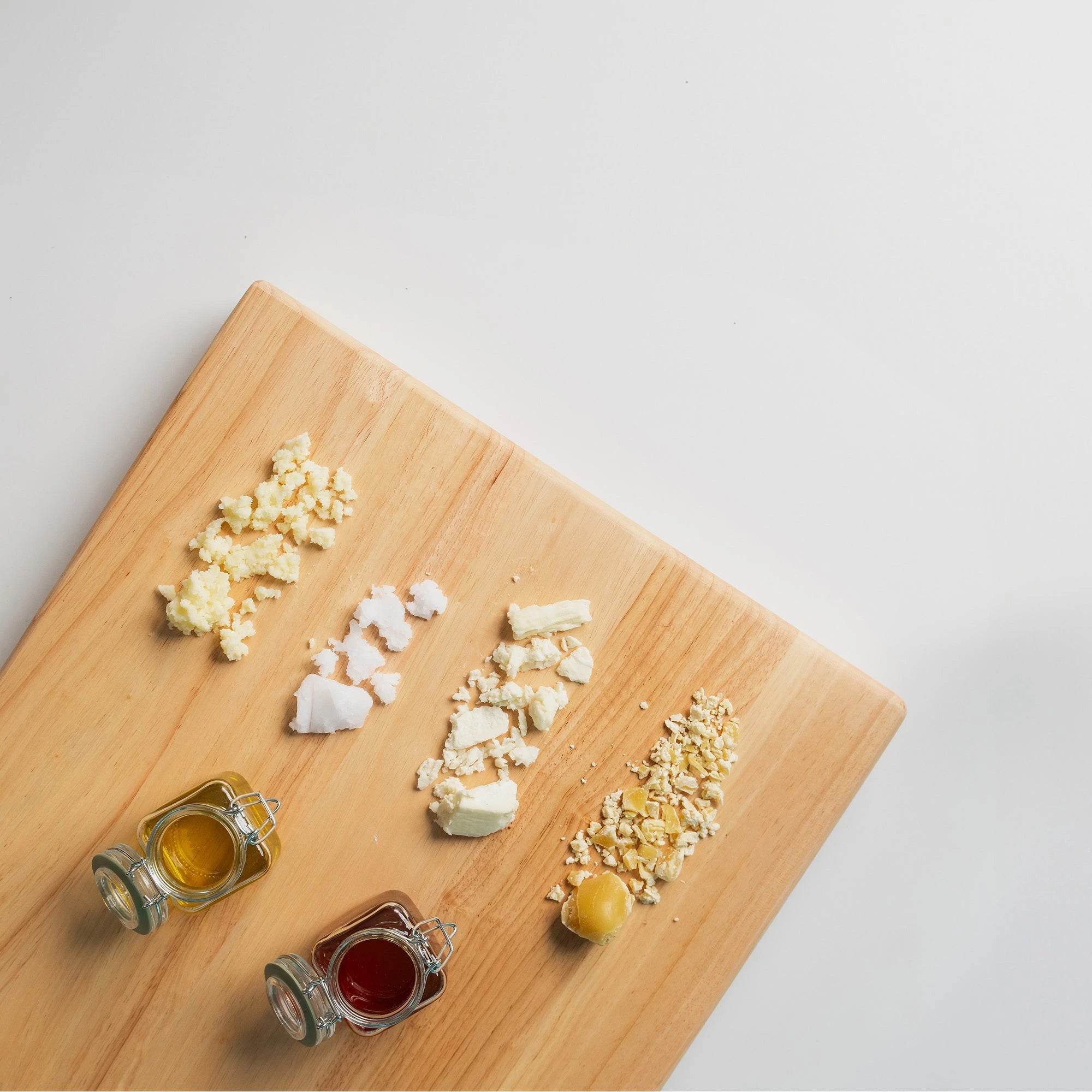Let's talk about something that's been causing quite a stir in the skincare world lately: beef tallow. Yes, you read that right – we're talking about rendered beef fat being used in your skincare routine. If you're raising an eyebrow right now, you're not alone. The idea of putting animal fat on your face might sound bizarre, but this traditional ingredient is making a serious comeback, and for good reason.
But here's the million-dollar question that everyone's asking: does tallow actually clog your pores? It's a fair concern, especially if you've been conditioned to think that all fats and oils are pore-clogging enemies. Let's dive deep into this topic and separate fact from fiction.
What Exactly Is Beef Tallow?
Before we get into the nitty-gritty of pore-clogging potential, let's establish what we're actually talking about. Beef tallow is simply rendered fat from cattle – specifically, the fat that's been slowly cooked down until it becomes a smooth, creamy substance. It's been used for centuries in everything from cooking to candle-making, and yes, skincare.
Your great-grandmother probably used something similar without even thinking twice about it. In fact, before the skincare industry became the complex, chemical-laden world it is today, people relied on simple, natural ingredients like tallow to keep their skin healthy and moisturized.
The tallow used in modern skincare products is typically sourced from grass-fed cattle and undergoes a careful rendering process to ensure it's pure and suitable for cosmetic use. It's rich in vitamins A, D, E, and K, along with essential fatty acids that your skin actually recognizes and can use effectively.
Understanding the Comedogenic Rating System
To really understand whether tallow clogs pores, we need to talk about something called the comedogenic rating system. This is basically a scale from 0 to 5 that rates how likely an ingredient is to clog your pores. Here's how it breaks down:
- 0: Won't clog pores at all
- 1: Very low chance of clogging pores
- 2: Moderately low chance
- 3: Moderate chance
- 4: Fairly high chance
- 5: High chance of clogging pores
So where does beef tallow fall on this scale? Surprisingly, it rates a 2, which puts it in the "moderately low chance" category. To put this in perspective, many popular skincare ingredients like coconut oil (rating of 4) and cocoa butter (rating of 4) are actually more likely to clog your pores than tallow.
The Science Behind Tallow's Compatibility with Your Skin
Here's where things get really interesting. The reason tallow has such a relatively low comedogenic rating comes down to its molecular structure and how similar it is to your skin's natural sebum. Human sebum – that's the oil your skin naturally produces – is about 50% similar to beef tallow in terms of fatty acid composition.
This similarity means your skin can actually recognize and process tallow more easily than many synthetic ingredients or even some plant-based oils. When your skin encounters something it recognizes, it's less likely to react negatively or get clogged up.
Think of it this way: if your skin speaks a certain language, tallow speaks a dialect that's pretty close to it. Synthetic ingredients, on the other hand, might as well be speaking a completely foreign language. Your skin has to work harder to figure out what to do with them, and sometimes that results in irritation, breakouts, or clogged pores.
Debunking Common Myths About Tallow
Let's address some of the most persistent myths about using tallow in skincare:
Myth 1: "All animal fats are heavy and greasy". This couldn't be further from the truth. Quality beef tallow, when properly rendered and processed, absorbs surprisingly well into the skin. It doesn't leave that heavy, greasy feeling that many people associate with animal fats. In fact, many users report that tallow-based products feel lighter on their skin than some plant-based alternatives.
Myth 2: "Tallow is dirty or unsanitary". Modern skincare tallow undergoes rigorous purification processes. It's filtered, refined, and tested to ensure it meets strict safety and quality standards. The tallow used in skincare products is as clean and pure as any other cosmetic ingredient on the market.
Myth 3: "If you have acne-prone skin, you should avoid all fats". This is oversimplified thinking. While it's true that some oils and fats can exacerbate acne, others can actually help balance your skin's oil production. The key is understanding which fats work well with your particular skin type and needs.
Myth 4: "Plant-based is always better for sensitive skin". While plant-based ingredients can be wonderful, they're not automatically better for everyone. Some people actually find that their skin reacts better to animal-based ingredients like tallow because of the molecular similarity to human sebum.
Who Should (and Shouldn't) Use Tallow-Based Skincare
Like any skincare ingredient, tallow isn't going to be perfect for everyone. Here's a realistic breakdown of who might benefit most from tallow-based products:
Good candidates for tallow skincare:
- People with dry or very dry skin
- Those dealing with eczema or other inflammatory skin conditions
- Anyone looking for simple, minimal-ingredient skincare
- People who react poorly to synthetic ingredients or preservatives
- Those with mature skin looking for rich, nourishing products
People who might want to proceed with caution:
- Those with extremely oily or acne-prone skin (though it's not automatically off-limits)
- People with known sensitivities to beef or other animal products
- Anyone following a strict vegan lifestyle
- Those who prefer lighter, fast-absorbing products
The Real Benefits of Tallow in Skincare
Beyond the pore-clogging question, let's talk about what tallow actually brings to the table. The benefits are pretty impressive:
Deep moisturization: Tallow provides long-lasting hydration without feeling heavy or greasy. It forms a protective barrier on your skin that helps prevent moisture loss throughout the day.
Nutrient density: Unlike many synthetic moisturizers, tallow is packed with fat-soluble vitamins that your skin can actually use. Vitamin A supports skin cell turnover, vitamin E provides antioxidant protection, and vitamin K helps with healing and reducing inflammation.
Anti-inflammatory properties: Many people report that tallow helps calm irritated or inflamed skin. This makes it particularly beneficial for conditions like eczema, psoriasis, or general skin sensitivity.
Skin barrier support: Because tallow is so similar to your skin's natural oils, it can help strengthen and repair your skin's protective barrier. This is crucial for healthy, resilient skin.
How to Incorporate Tallow into Your Routine
If you're curious about trying tallow-based skincare, here's how to do it smart:
Start small. Don't overhaul your entire routine at once. Try a small amount of a tallow-based product on a less visible area of your skin first to see how you react.
Pay attention to timing. Many people find that tallow-based products work best as part of their nighttime routine, when their skin has time to absorb and process the nutrients without interference from makeup or environmental factors.
Quality matters. Not all tallow products are created equal. Look for products made from grass-fed beef tallow, with minimal additional ingredients. The simpler the ingredient list, the better.
Be patient. Your skin might need time to adjust, especially if you've been using synthetic products for years. Give it at least a few weeks before deciding whether tallow works for you.
The Bottom Line on Tallow and Pore-Clogging
So, does tallow clog pores? The science suggests that for most people, the answer is no – at least not any more than many other common skincare ingredients. With its low comedogenic rating and similarity to human sebum, tallow is actually less likely to cause pore-clogging issues than many popular skincare ingredients.
That said, skincare is incredibly individual. What works beautifully for one person might not work for another, and that's completely normal. The key is understanding your own skin's needs and being willing to experiment (carefully) to find what works best for you.
If you're dealing with persistent acne or skin issues, it's always worth consulting with a dermatologist who can provide personalized advice based on your specific situation.
The resurgence of tallow in skincare represents a broader trend toward simpler, more natural ingredients that work with your skin rather than against it. While it might not be the miracle cure for everyone, it's certainly worth considering as part of a thoughtful, individualized approach to skincare.
Remember, the best skincare routine is the one that works for your unique skin, lifestyle, and preferences. Whether that includes tallow or not is entirely up to you.




